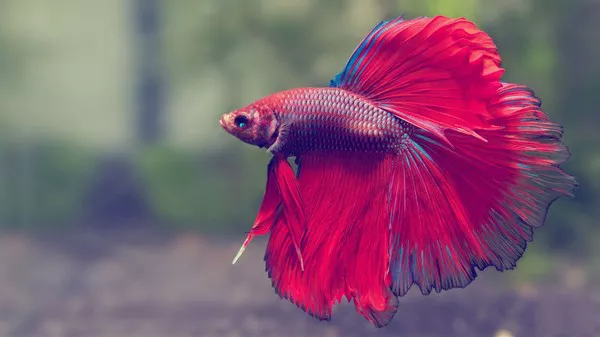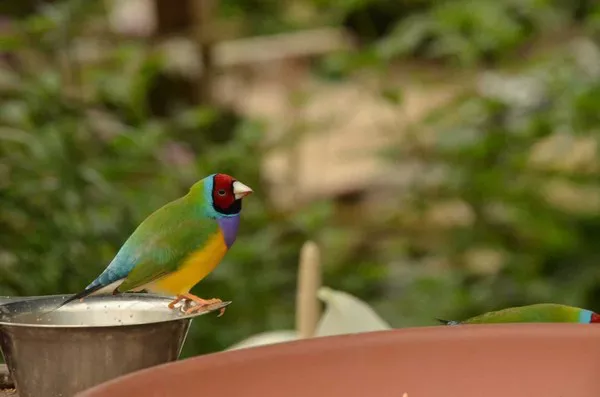Betta fish, also known as Siamese fighting fish, are some of the most popular and colorful pets in the aquarium hobby. Known for their vibrant colors, long flowing fins, and relatively easy care, Bettas are often chosen by first-time fish owners. However, despite their resilience, Betta fish still need a carefully maintained environment to thrive, especially in terms of water quality. One of the most crucial aspects of keeping a Betta healthy is understanding how often to change the water in its tank. This article will guide you through the process of water changes in a 5-gallon Betta tank, including the reasons behind regular water changes, how to do it properly, and how to maintain a healthy aquatic environment for your Betta fish.
Understanding the Betta Fish’s Needs
Betta fish are native to Southeast Asia, particularly in Thailand, Vietnam, Laos, and Cambodia, where they inhabit slow-moving or stagnant waters like rice paddies, ponds, and marshes. In the wild, Betta fish have evolved to tolerate a wide range of water conditions, but in captivity, they need carefully controlled environments to maintain their health and vibrancy.
When it comes to water, there are several factors that influence your Betta’s well-being, including:
- Water Temperature: Bettas are tropical fish and prefer warmer water, usually between 76°F and 82°F (24°C to 28°C). If the water gets too cold or too hot, Betta fish can become stressed, which weakens their immune system and can lead to disease.
- Water pH and Hardness: Betta fish thrive in water with a slightly acidic to neutral pH, ranging from 6.5 to 7.5. The hardness of the water should be moderately soft to moderately hard.
- Water Cleanliness: Just like any other pet, Bettas require clean water. Regular water changes are essential for removing waste, toxins, and excess food, all of which can lead to poor water quality.
In this guide, we will focus on the most critical aspect of maintaining water quality in your Betta’s tank: water changes.
Why Regular Water Changes Are Essential
A Betta tank, no matter its size, will inevitably accumulate organic waste over time. This waste can come from a few sources:
- Fish Waste: Betta fish, like all aquatic animals, produce waste in the form of ammonia, which is toxic to fish in high concentrations. Even though Betta fish are small, the ammonia they produce can build up quickly, especially in smaller tanks like a 5-gallon.
- Uneaten Food: Bettas are notorious for being messy eaters. They may leave uneaten food in the tank, which decomposes and contributes to poor water quality.
- Decaying Plants: While live plants in a Betta tank can provide aesthetic benefits and enhance water quality by absorbing toxins, they can also decay over time, releasing organic material into the water.
- Bacterial Growth: Beneficial bacteria live in the tank and help break down waste, but if water quality deteriorates, harmful bacteria can also proliferate. These can cause diseases like fin rot or mouth rot in your Betta.
When the water quality becomes poor, your Betta fish can experience stress, a weakened immune system, and ultimately, health problems. Regular water changes help keep the water clean by diluting harmful substances and replenishing essential elements.
Factors to Consider When Deciding How Often to Change the Water
When it comes to changing the water in a 5-gallon Betta tank, there is no one-size-fits-all answer. Several factors influence how frequently water changes should be done:
1. Filtration System
A filtration system helps keep the water clean by removing waste and toxins. However, while filters can reduce the frequency of water changes, they do not eliminate the need for them entirely. Even with a filter, waste still accumulates, and water quality can decline over time.
For a 5-gallon tank, you can choose either an internal or external filter. However, note that not all filters are ideal for Betta fish. Bettas are slow swimmers and can be easily stressed by strong water currents. Choose a filter that provides gentle filtration to avoid disturbing your Betta’s peace.
2. Feeding Habits
How often you feed your Betta plays a significant role in determining how quickly waste accumulates in the tank. Bettas are carnivores and should be fed a small amount of high-quality food once or twice a day. Overfeeding is a common mistake that leads to excess waste and deteriorating water quality. You should aim to feed your Betta only as much food as it can consume in 2-3 minutes to avoid leftovers that will break down in the tank.
3. Tank Decor and Plant Life
Plants and decorations can both help and hinder water quality. Live plants absorb nutrients from the water and can act as natural filters, reducing the buildup of harmful substances. However, if plants are overgrown or dying, they can contribute to the organic waste in the tank. Regularly trim and care for your plants to ensure they contribute to a healthy ecosystem. Similarly, ornaments should be cleaned regularly to prevent the accumulation of dirt and algae.
4. Water Parameters
Before deciding on a water change schedule, it’s essential to regularly test the water’s parameters, including ammonia, nitrite, nitrate, pH, and hardness. Ammonia and nitrites should always be at zero, and nitrates should be kept below 20 ppm (parts per million) for a healthy Betta tank.
- Ammonia: Toxic to fish in even small concentrations, ammonia builds up quickly in small tanks.
- Nitrites: Like ammonia, nitrites are toxic and should never be present in your Betta tank.
- Nitrates: While less toxic than ammonia and nitrites, high levels of nitrates (above 40 ppm) can stress Betta fish and promote algae growth.
Regular water testing will give you a better understanding of when to change the water. If ammonia or nitrites spike, it’s time for a water change, regardless of your regular schedule.
A General Water Change Schedule for a 5-Gallon Betta Tank
The ideal frequency of water changes in a 5-gallon Betta tank depends on the factors mentioned earlier, but a general guideline can be followed:
Partial Water Changes (20-30% every 1-2 weeks)
For a 5-gallon tank, a 20-30% partial water change every 1-2 weeks is typically recommended for tanks with a filtration system. This schedule helps maintain water quality without stressing the Betta. The frequency of partial water changes can be adjusted based on the following factors:
- Filterless Tank: If your tank doesn’t have a filter, you’ll need to perform more frequent water changes, typically every 3-4 days, to keep the water clean. Without a filter to help with waste removal, toxins accumulate faster.
- Heavily Planted Tank: If your 5-gallon tank is densely planted, the plants may help absorb some of the waste and nutrients, allowing you to extend the time between water changes. You might be able to do a 30-40% water change every 10-14 days instead.
- Heavily Stocked Tank: If your Betta tank houses additional fish, or if it’s overcrowded, you may need to change the water more frequently (every 4-5 days) to maintain healthy water conditions.
How to Perform a Water Change in a 5-Gallon Betta Tank
Performing a water change in a 5-gallon Betta tank isn’t difficult, but it requires some preparation and care. Here’s a step-by-step guide:
Gather Your Supplies:
- A siphon or gravel vacuum to remove debris and waste.
- A clean bucket for collecting and replacing water.
- A water conditioner to neutralize chlorine, chloramine, and heavy metals from tap water.
- A thermometer to check the temperature of the new water.
- A clean cloth or sponge for cleaning tank walls (optional).
Prepare the New Water:
Fill your clean bucket with fresh tap water that matches the temperature of the tank. Use a thermometer to ensure the water temperature is similar to your tank’s water (around 76°F to 82°F).
Add water conditioner to remove harmful chemicals like chlorine and chloramine from the tap water.
Remove Debris and Waste:
Use the siphon or gravel vacuum to remove debris and waste from the bottom of the tank. Gently siphon the substrate, taking care not to stir up too much debris that could harm the Betta.
Be cautious around plants and decorations to avoid disturbing them too much.
Replace the Water:
Slowly pour the conditioned water back into the tank, ensuring the water level rises gradually and doesn’t disturb the Betta too much.
Keep the water level consistent with the previous height, so the Betta doesn’t feel too much stress.
Clean the Tank (Optional):
If necessary, gently wipe down the inside of the tank glass to remove algae buildup. Avoid using soaps or chemicals, as these can harm the Betta.
Test the Water:
After performing the water change, test the water’s parameters (ammonia, nitrite, nitrate, pH) to ensure everything is in the safe range for your Betta.
Other Tips for Maintaining a Healthy 5-Gallon Betta Tank
- Use a Heater: Bettas need a stable water temperature. Invest in a reliable aquarium heater to maintain the ideal temperature range for your Betta.
- Avoid Overfeeding: Overfeeding can quickly lead to water pollution. Feed your Betta small, appropriate amounts of food once or twice a day, and remove any uneaten food promptly.
- Monitor the Fish’s Behavior: Stress or poor water quality can cause Betta fish to display signs of illness, such as clamped fins, lethargy, or faded colors. Keep a close eye on your Betta, and if any of these signs occur, consider doing a water change and testing the water parameters.
Conclusion
Water changes are one of the most important aspects of maintaining a healthy Betta tank. In a 5-gallon tank, a 20-30% partial water change every 1-2 weeks is usually sufficient, but factors like filtration, feeding habits, and tank conditions can affect how often you need to change the water. By regularly checking the water’s quality and being proactive about maintenance, you can ensure your Betta stays happy, healthy, and vibrant for years to come.
With proper care, your Betta will thrive in its 5-gallon home, and you’ll enjoy watching your beautiful fish swim gracefully through its clean, well-maintained aquatic environment.
Related Topics:


























